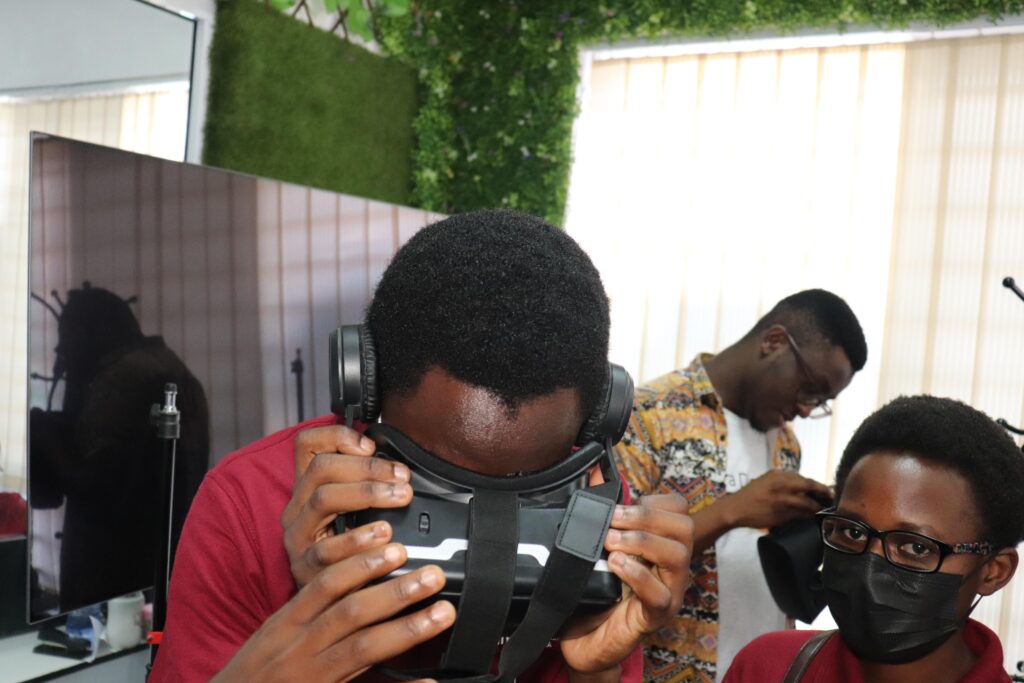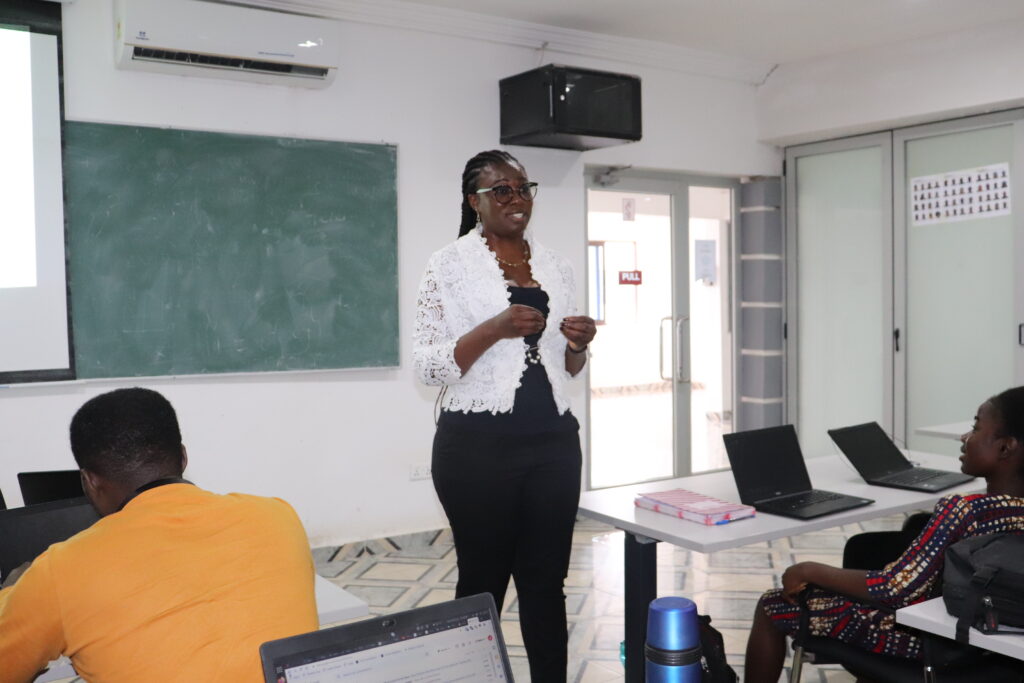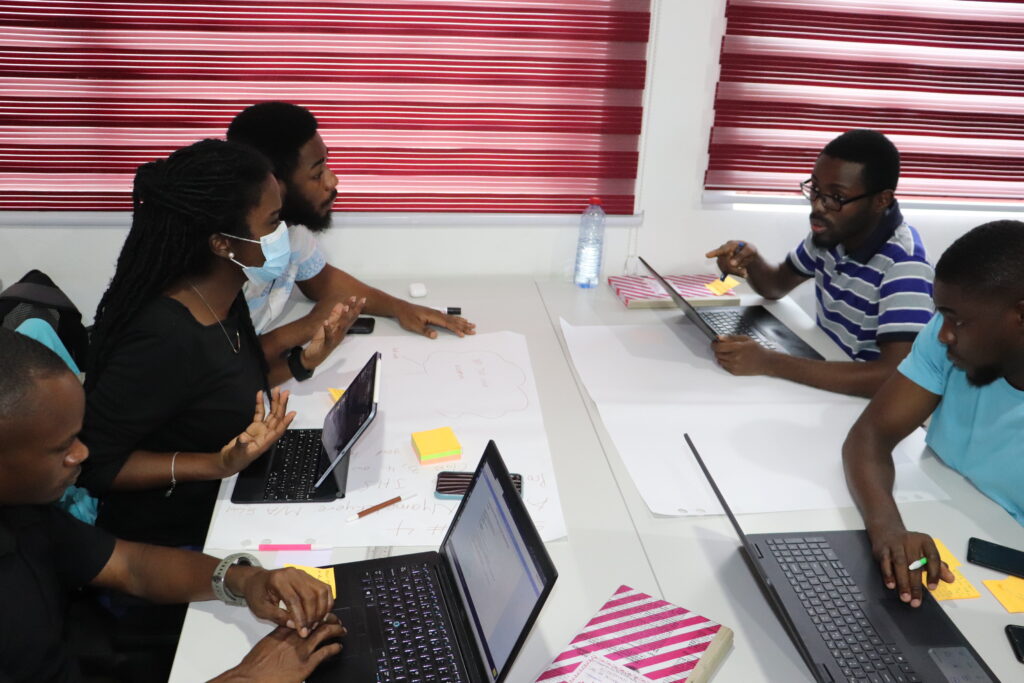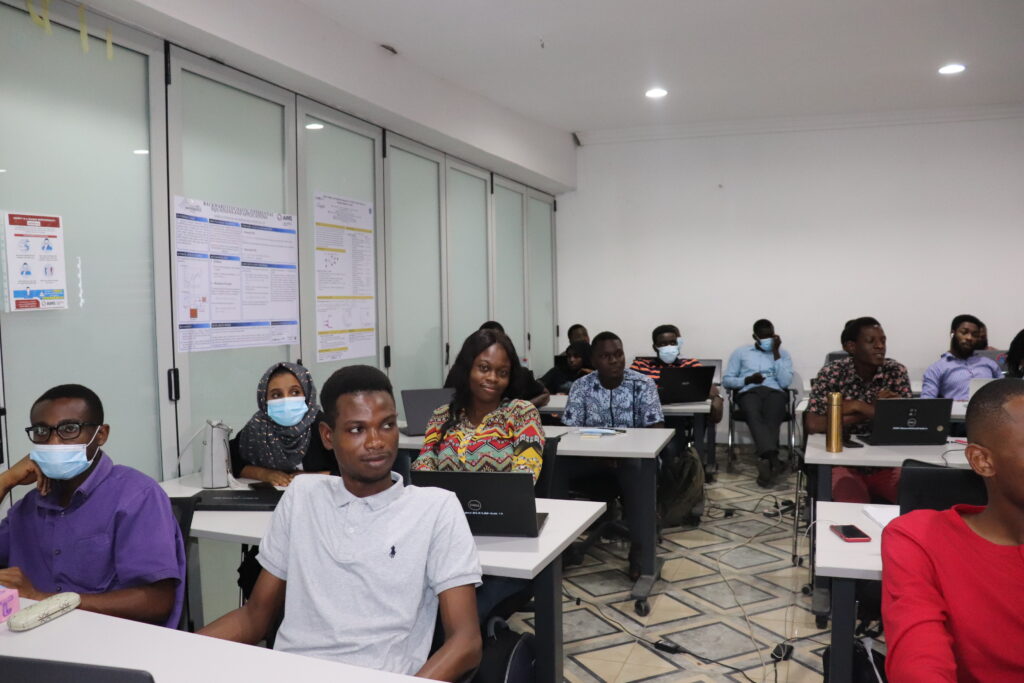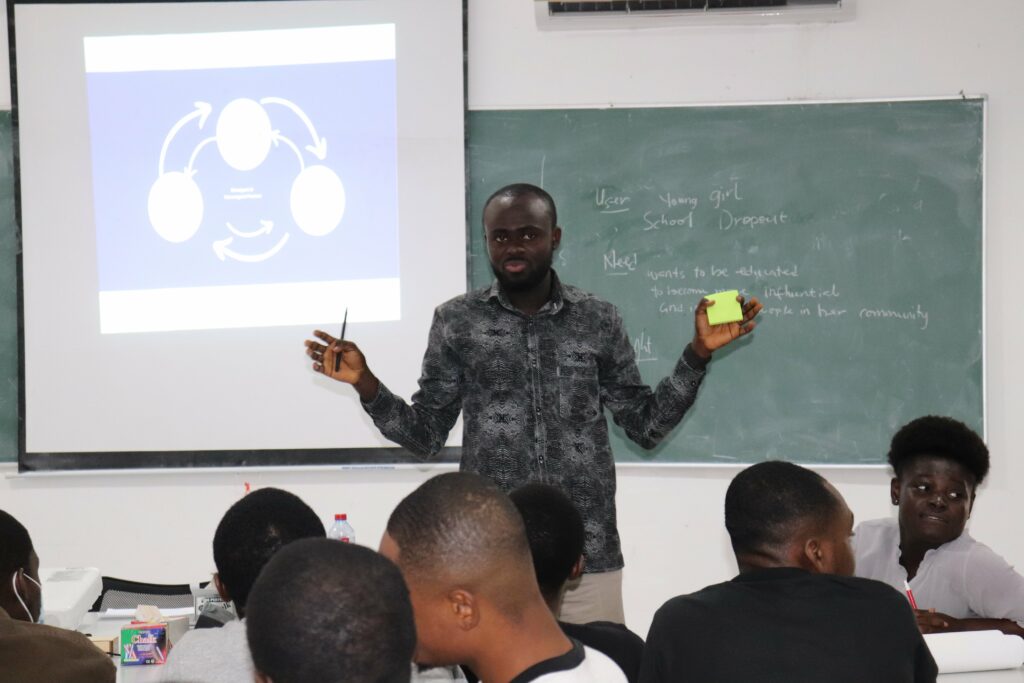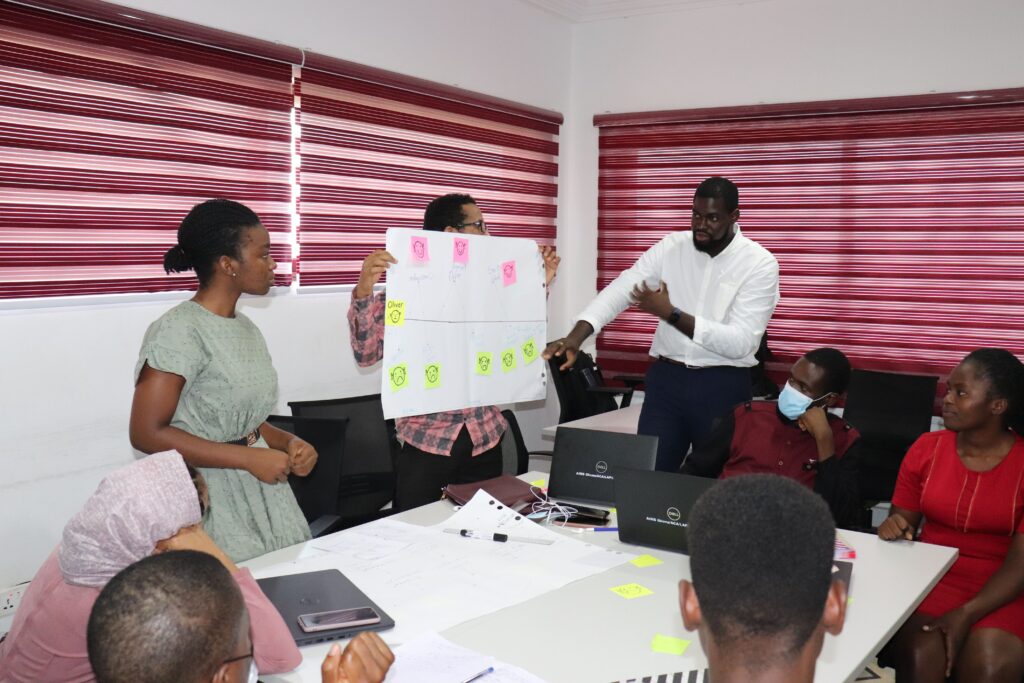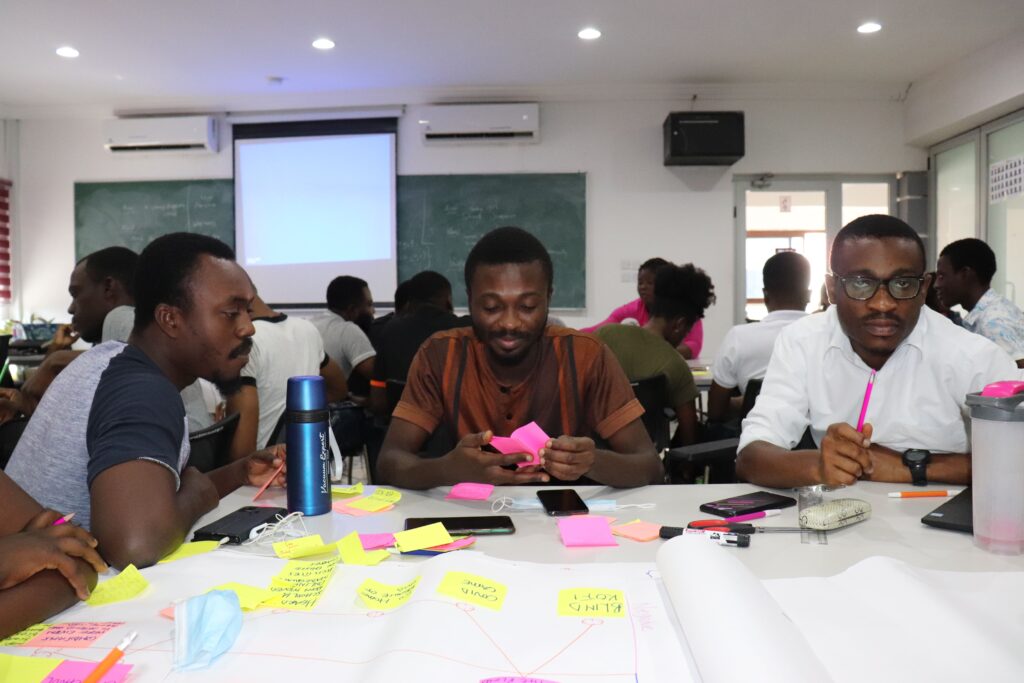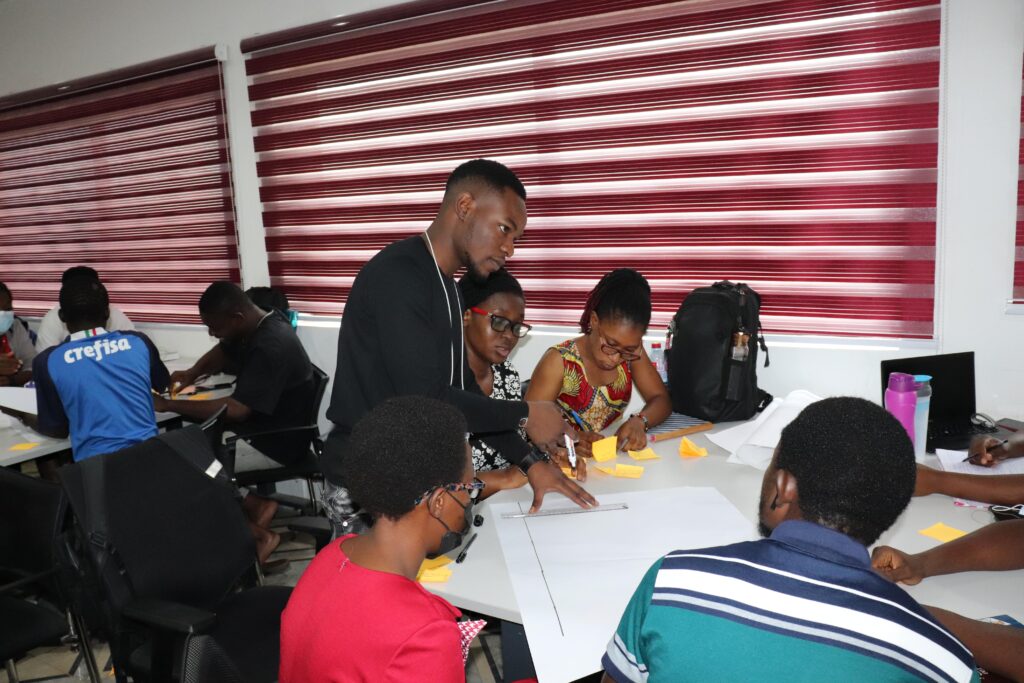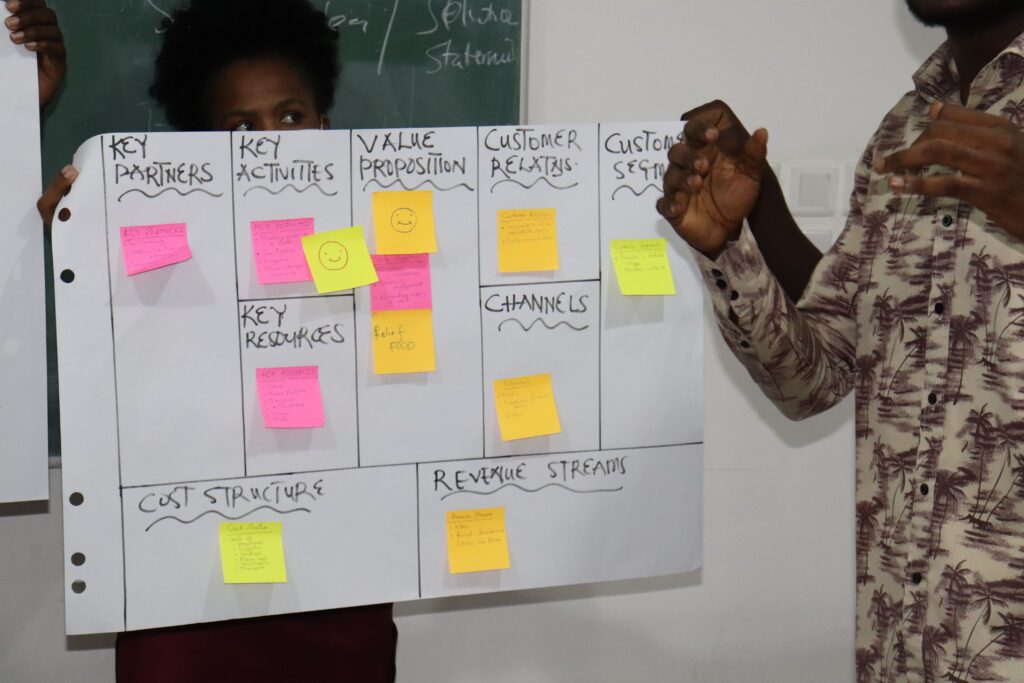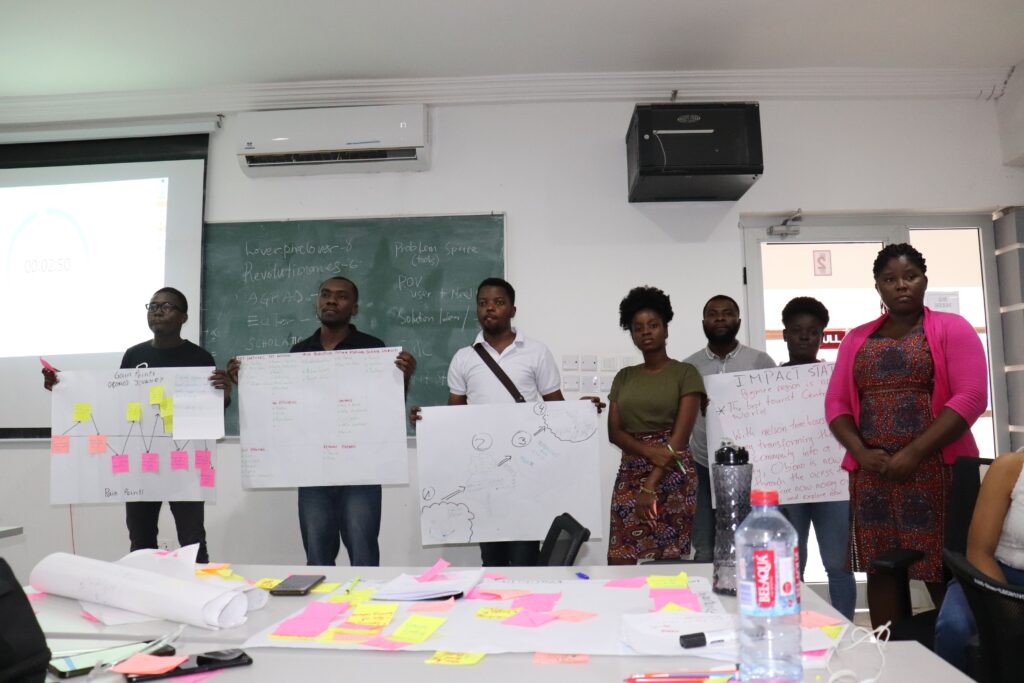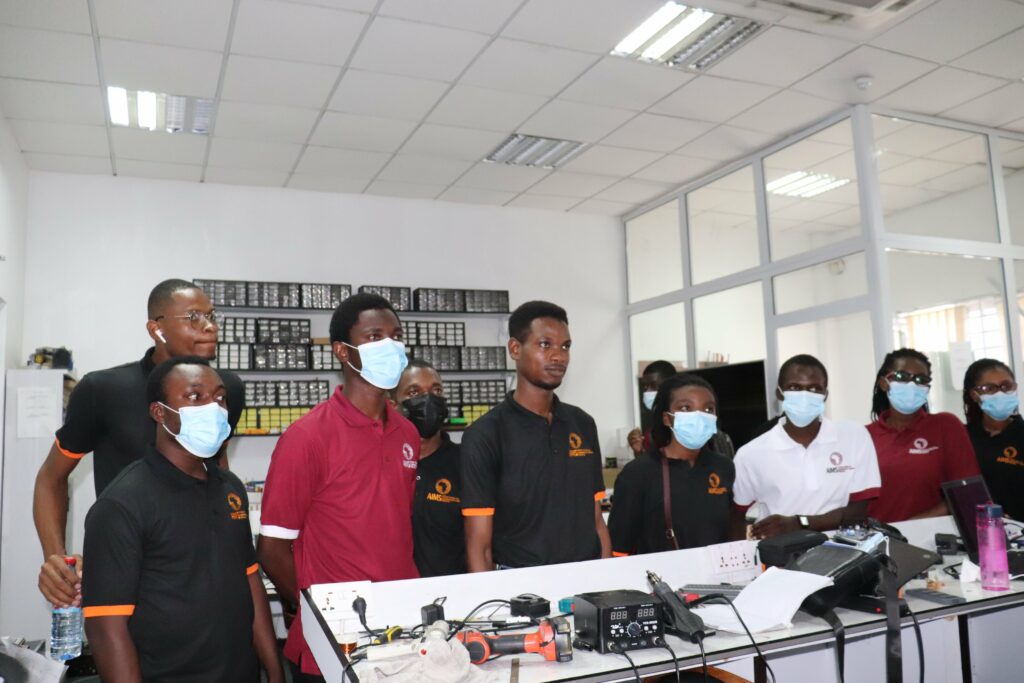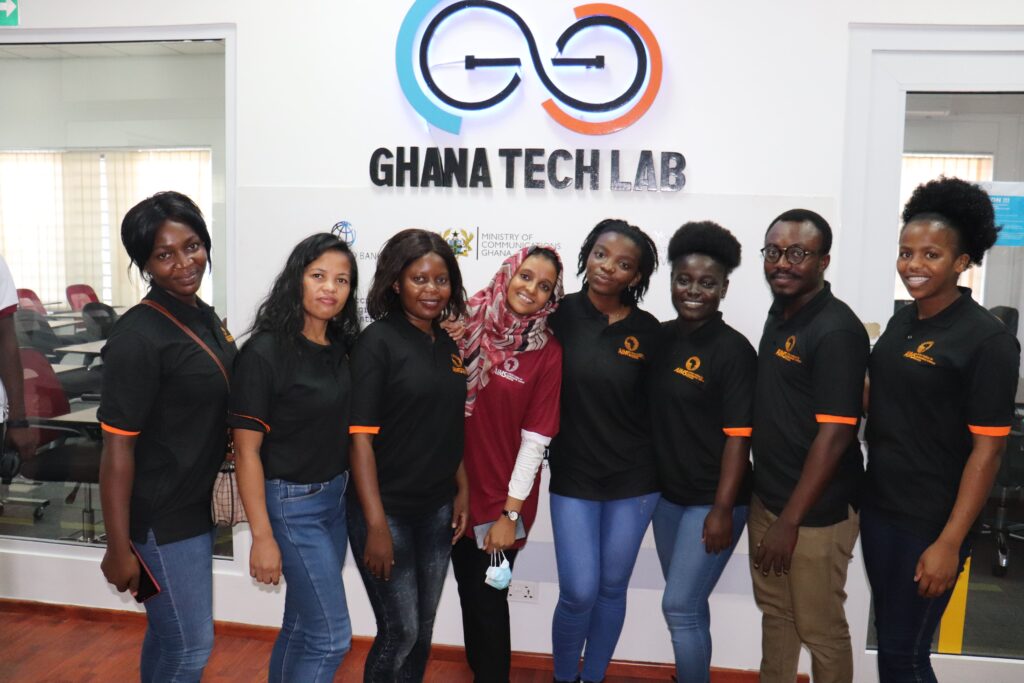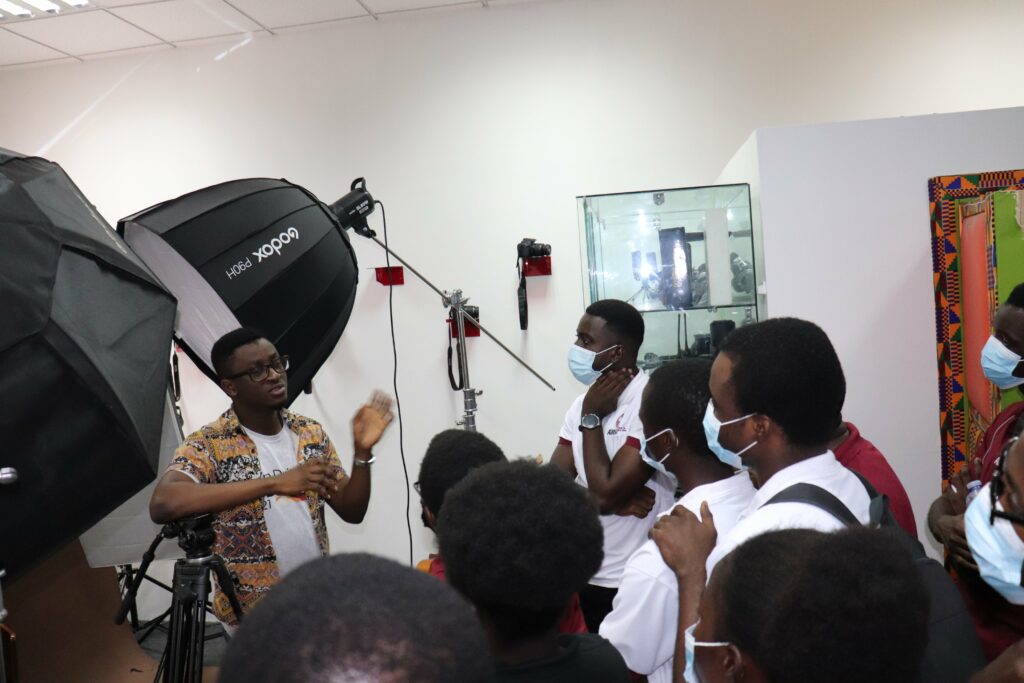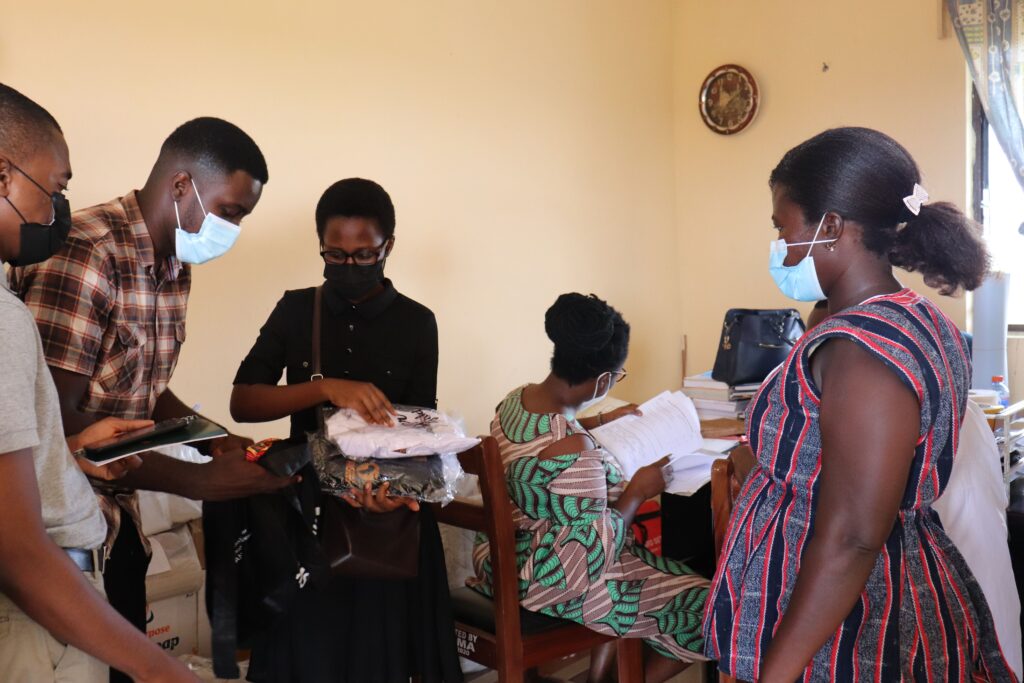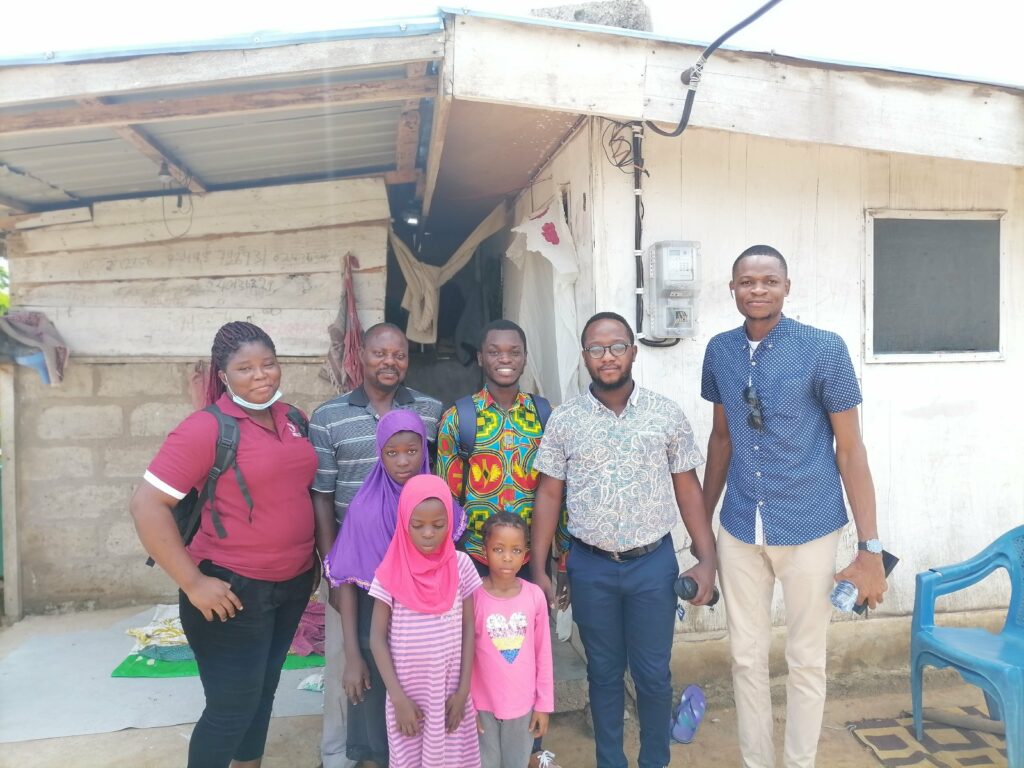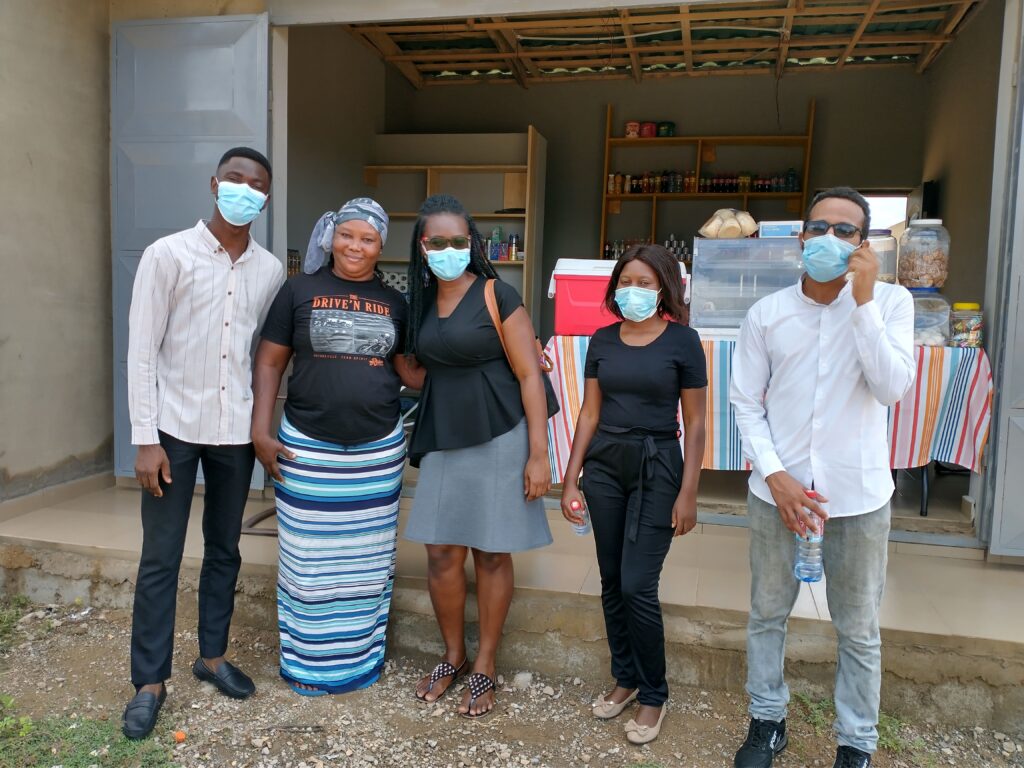The AIMS Ghana Entrepreneurship Week (E-Week) is celebrated annually and being a week-long program, this year it started on October 11 and ended on October 15 2021. It was an opportunity to introduce this year’s batch of students to basic principles in the workplace as well as entrepreneurial techniques. Activities during the one-week period focused on Career Development, Design Thinking Methodologies an Industrial visit and a Community Fact-finding mission.
During this period, the Regular Master’s Students got to take a break from the rigours of abstract mathematics, learn about problem-solving and ideation as well as build work ethics and skills which would be relevant in industry. The E-Week program has indeed become a necessity due to the impact it has had on students over the past years.
Day 1: Career Development, Communications and Etiquette
The students were taken through three critical topics; Career Development, Communication, and Etiquettes. The session was completely interactive with students engaging in discussions on various employability skills and career development, led by Ms. Sarah Osei, a Program Manager at the Centre. This session included planning and mapping out a strategy to grow in the profession one chooses. This enabled students to re-examine their career choices in order to set realistic goals. There was also a session on communications and etiquettes focused on the style and form of communication at the workplace. During the presentation, Sarah focused the talk on the do’s and don’ts when it comes to Meeting People, Telephone and Video Calls, Correspondence, Dining and General Work Etiquette.
DAY 2 – 3: Training Sessions with Design Thinking Ghana
Design thinking is recognized as one of the most effective tools used for entrepreneurial strategizing purposes. In this regard, two days were allocated for this training session, facilitated by Design Thinking Ghana consisting of Mr. Bryan Achiampong and his team. It started with exposure to the “Power of Design Thinking in Exploring Entrepreneurship and Intrapreneurship in a Global Village”. The class was divided into eight groups. Each group was to critically examine the Sustainable Development Goals, identify a problem and provide business solutions. Students were trained on how to develop a ‘point of view’, which entails sampling an individual from the whole population facing the problem identified and addressing their specific needs.
The session continued on day 3 with students were finally reaching the final stage of the design thinking process, which centres on developing a ‘Business Model Canvas’ being an accumulation of various stages of the design thinking process. This allowed students to give a concise summary of the business plan and how to execute it. Students were given some time to put their work together, and final presentations were delivered. With critique and commendation, students demonstrated a unique ability to come up with fantastic ideas within a short period. Closing the design thinking session, Ms Sarah Osei applauded the students for exhibiting amazing work which could be considered for further development they were able to come up with within the limited time and space.
DAY 4 – Industrial Visit to Ghana Tech Lab
Students paid an industrial visit to Ghana Tech Lab, which is an open, collaborative space for competent digital skills training, seeding innovations and growing startups. They were taken through the various works that take place within the space. In groups of relatively small numbers, the students toured the drone building section, the multimedia section, and the 3D modelling section. This exposed them to how to apply hardcore knowledge to industry and problem-solving.
DAY 5 – Community Fact-Finding Mission
On the final day of the E-week, students embarked on a community fact-finding mission where they were divided into eleven groups going round the community to gather facts on common and pressing challenges facing the community. These include poor road systems, crime, poor water supply among others. Problems within the vicinity were discussed by the students after exploring after which they will come up with solutions at the end of the academic year.
Overall, the students sent out appreciation messages to organizers, attesting to an interesting session with so much knowledge shared and ideas created.

